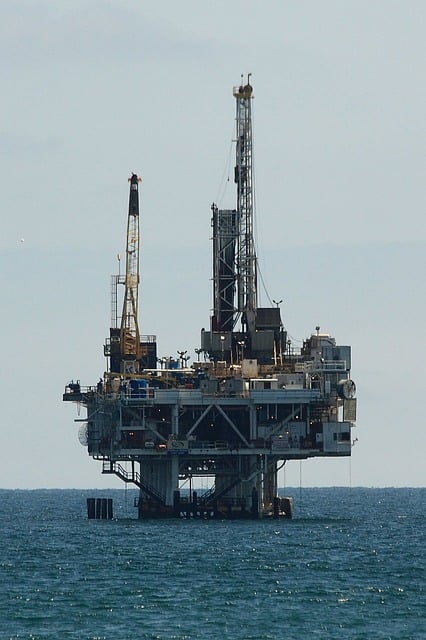




Offshore Injury Claims
Compensation For Oil and Gas Rig Workers
Working on offshore oil and gas rigs presents significant risks to employees and offshore injury claims. The harsh environment, heavy machinery, and hazardous substances make offshore employment one of the most dangerous professions. Workers often suffer from severe injuries, leading to loss of earnings, long-term medical care, or even permanent disability.
The major players in the offshore oil and gas industry are in Scotland, with key operations based in the North Sea. Aberdeen has been described as the ‘oil capital’ of Europe, while the gas industry in Scotland is reputed to be the second largest in Europe. This translates into thousands of employees.
Oil and gas companies are legally obligated to ensure worker safety and adhere to strict industry regulations. However, accidents may still happen due to negligence, equipment failure, or lack of proper safety measures.
For those employed by offshore companies, is crucial to understand your legal rights when seeking compensation for injuries sustained on the job. If you want to find out more about filing a personal injury claim, contact Jefferies Claims today.
We work with highly experienced lawyers who will assess your case and who operate on a ‘No Win, No Fee’ basis.
Common Offshore Injuries in the Oil and Gas Industry
The offshore oil and gas sector exposes workers to various dangers, which may lead to severe injuries. Some of the most common offshore injuries include:
Crush Injuries
Workers can get caught between heavy machinery, cargo, or equipment, leading to broken bones, internal bleeding, and permanent disability.
Burns and Chemical Exposure
The presence of flammable materials and hazardous chemicals increases the risk of burns, inhalation injuries, or skin conditions.
Falls from Height
Many offshore workers operate at significant heights, and falls can result in traumatic brain injuries, fractures, or spinal cord damage.
Slips, Trips, and Falls
Oil spills, wet surfaces, and uneven flooring often cause slip-and-fall accidents, leading to sprains, concussions, and broken limbs.
Drowning and Near-Drowning Incidents
Working in a marine environment means workers risk falling into the sea. This may result in hypothermia or drowning if safety measures are inadequate.
Repetitive Strain Injuries (RSI)
The physically demanding nature of offshore work can cause long-term musculoskeletal disorders due to repetitive motions and overexertion.
Hearing Loss
The constant exposure to loud drilling and heavy machinery noise may lead to permanent hearing impairment.
Head and Brain Injuries
Falling objects, explosions, or heavy impacts can result in concussions, traumatic brain injuries (TBI), or even fatalities.
Risky Jobs on Offshore Oil Rigs
Various job roles on offshore oil rigs come with significant injury risks. Some of the most hazardous positions include:
Drillers and Derrick Operators – These workers operate heavy drilling equipment and work at considerable heights. The risk of falling, equipment malfunctions, and exposure to high-pressure fluids creates a high risk environment for employees.
Roustabouts – These employees handle physically demanding tasks such as moving heavy equipment, maintaining machinery, and working in extreme weather conditions.
Welders and Pipefitters – Handling high-temperature welding equipment and working in confined spaces exposes these workers to burns, explosions, and inhalation of toxic fumes.
Crane Operators – Responsible for lifting heavy loads, crane operators face risks from mechanical failures, falling objects, and frequent poor weather conditions that can impact crane stability.
Electricians – Working with high-voltage electrical systems on offshore rigs exposes electricians to risks of electrocution, fires, and explosions.
Medics – While responsible for treating injuries, offshore medics may be at risk of exposure to hazardous substances or physically demanding emergency response situations.
Divers – Working underwater to inspect and repair subsea structures places divers at risk of decompression sickness, drowning, and possible encounters with underwater hazards.
Engineers and Mechanics – These professionals maintain critical rig components. They often work in confined spaces with heavy machinery and this increases the risk of crush injuries and exposure to toxic chemicals.
Offshore Injury Claims
If you have been injured due to employer negligence, you may be eligible to file a personal injury claim. You must be able to show that your injury was not your fault.
Your first step will be to report the accident to your employer and ensure it is recorded in the company accident book. You should seek medical treatment even if the injury seems minor. For a claim, medical records are essential.
Gathering evidence will strengthen your case, including photos of your injuries and the accident scene. Additionally witness statements from colleagues will help your case. Personal injury claims depend on proving employer negligence. This may include factors such as inadequate training, failure to maintain equipment, lack of safety measures or unsafe working conditions.
Next Steps
Compensation typically covers medical expenses, loss of earnings as well as future income and pain and suffering. Consulting with lawyers who are experienced in personal injury claims is crucial as they will fully assess your case and guide you through the process.
Jefferies Claims can guide you through the next steps of making a claim. We work with lawyers who operate on a ‘No Win, No Fee’ basis and who are highly experienced to take your case forward.
Call us at 0333 358 3034 or visit Jefferies Claims Contact Page to discuss your potential claim in a free, no-obligation consultation.
